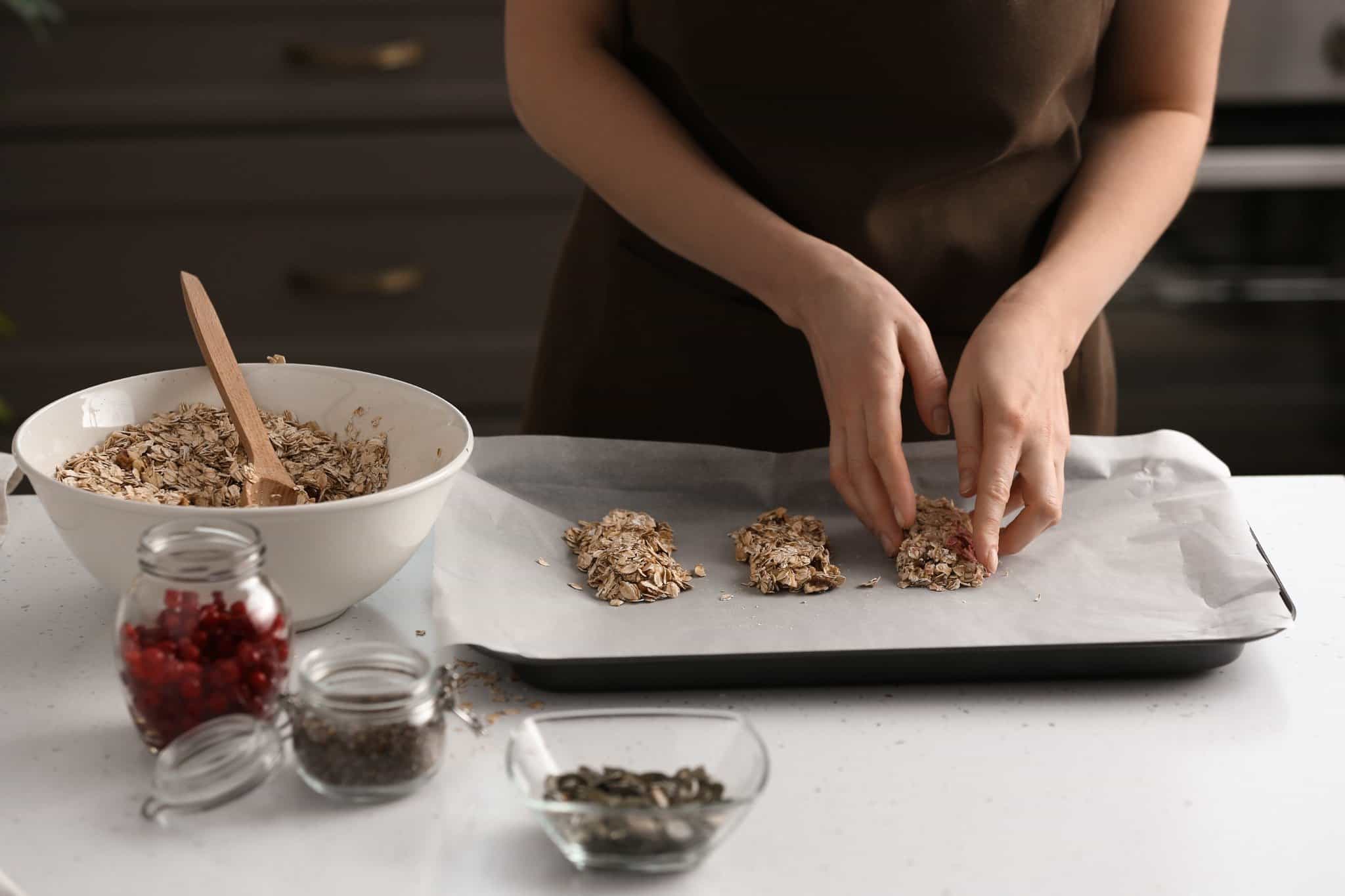Inflammation and gut health are closely tied. What you eat shapes how your body handles both. The right diet reduces bloating, calms your system, and builds resilience against chronic disease. That’s why choosing foods for gut health and inflammation matters. These foods help balance your microbiome and fight the silent triggers that lead to long-term health problems.
By focusing on simple but powerful ingredients, you can turn your plate into your best defense. In this guide, we’ll explore what foods work, why they matter, and how to add them to your routine without overthinking your meals.
Why Gut Health and Inflammation Are Connected
Your gut is not just for digestion. It controls immunity, hormones, and even mood. When inflammation runs high, your gut lining weakens. This allows toxins to leak into the bloodstream, a process often called “leaky gut.” Foods high in sugar, processed oils, and refined carbs make it worse.
On the flip side, whole and nutrient-dense foods calm inflammation, strengthen gut bacteria, and improve absorption of nutrients. That’s why making smart choices around foods for gut health and inflammation can change everything—from how you feel daily to how your body prevents disease.
Fiber: The Unsung Hero of Gut Health
Fiber is essential because it feeds the good bacteria in your gut. When these bacteria thrive, they produce short-chain fatty acids that directly lower inflammation. Vegetables, beans, oats, and fruits are fiber-packed staples.
- Soluble fiber (found in oats, beans, apples) slows digestion and balances blood sugar.
- Insoluble fiber (found in whole grains, leafy greens) keeps your gut moving smoothly.
By adding more of these foods daily, you improve gut function while reducing chronic inflammation. This makes fiber-rich foods one of the best categories of foods for gut health and inflammation. To track how much fiber you’re getting from your meals, apps like MyFitnessPal make it simple to log your intake and ensure you’re eating enough foods for gut health and inflammation every day.
For deeper reading, explore the Gut Health section where more science-backed tips are shared.

Fermented Foods: Natural Probiotics
Fermented foods are living systems of beneficial bacteria. Think yogurt, kefir, sauerkraut, kimchi, and miso. These help populate your gut with probiotics. When good bacteria dominate, they crowd out harmful microbes that trigger inflammation.
Eating even a few servings of fermented foods weekly can make digestion smoother and immunity stronger. Yogurt with live cultures is a simple daily option. Kimchi or sauerkraut on the side of meals can bring variety. If you’re looking for foods for gut health and inflammation, this group ranks near the top.
Anti-Inflammatory Spices: More Than Flavor
Spices like turmeric, ginger, and cinnamon are rich in compounds that calm inflammation. Turmeric’s curcumin reduces markers of chronic inflammation, while ginger supports digestion. Even a teaspoon daily can make a difference.
Sprinkle turmeric on roasted veggies, blend ginger into smoothies, or use cinnamon with oats. These simple practices make your meals anti-inflammatory without being complicated.
For recipe ideas and how these spices show up in modern eating, see the Food Trends page.
Superfoods That Boost Both Gut and Immunity
Some ingredients are rightly called superfoods. They’re nutrient-dense and deliver benefits beyond calories.
- Berries: High in antioxidants and fiber.
- Leafy greens: Provide vitamins, minerals, and prebiotic fiber.
- Chia and flax seeds: Packed with omega-3 fatty acids to lower inflammation.
- Garlic and onions: Natural prebiotics that feed healthy gut bacteria.
Incorporating these consistently ensures you’re eating some of the most effective foods for gut health and inflammation. Tools like Cronometer help you measure antioxidants and nutrients in your meals, giving insight into how superfoods serve as powerful foods for gut health and inflammation.
You’ll find more inspiration for these powerhouse picks on the Superfoods section.
Healthy Fats: The Good Kind of Oil
Not all fats are equal. Processed vegetable oils promote inflammation, but omega-3 fats reduce it. Salmon, sardines, walnuts, flaxseeds, and chia seeds are great sources. They improve gut lining integrity and reduce oxidative stress.
Cooking with olive oil instead of seed oils also makes a major difference. It’s a small swap but one that can steadily reduce inflammation markers in your body. These are must-have foods for gut health and inflammation.
Smart Snacks That Heal Instead of Harm
Most packaged snacks fuel inflammation—think chips, cookies, and sugar bars. But smart choices can turn snack time into gut-healing moments. Options like hummus with veggie sticks, apple slices with almond butter, or roasted chickpeas are filling and anti-inflammatory. To make better snack swaps on the go, the Lifesum app suggests healthy choices that double as foods for gut health and inflammation, keeping you on track without much effort.
Switching to smart snacks means less processed sugar and more natural fiber, which feeds gut bacteria. Over time, these swaps contribute to healthier digestion and lower inflammation levels. For snack strategies, check out the Smart Snacks section.

Mood, Gut, and Inflammation
What you eat affects how you feel emotionally. Serotonin, the “feel-good” neurotransmitter, is largely produced in the gut. That’s why your diet directly influences mood.
Foods rich in probiotics, omega-3s, and magnesium help calm both the gut and the nervous system. Dark chocolate, nuts, seeds, and fatty fish are great examples. This connection highlights why foods for gut health and inflammation also play a role in mental balance.
Read more about this fascinating relationship under Food & Mood.
The Role of Hydration
Water is not often discussed, but hydration is key. Proper hydration supports digestion, nutrient absorption, and the movement of fiber through your system. Herbal teas like ginger or green tea also provide anti-inflammatory effects.
Without enough water, fiber cannot do its job effectively, and inflammation worsens. Pairing high-fiber foods for gut health and inflammation with hydration ensures your gut bacteria stay balanced.
Foods to Avoid for Better Gut Health
Just as some foods heal, others harm. Refined sugar, fried foods, processed meats, and artificial additives all fuel inflammation. Excess alcohol also disrupts gut bacteria.
Cutting down on these triggers makes space for healing foods to work. You don’t need to be perfect—just crowding out unhealthy choices with gut-friendly foods already creates lasting changes.
A Day of Eating for Gut Health
Here’s a simple sample menu built entirely around foods for gut health and inflammation:
- Breakfast: Oats topped with chia seeds, blueberries, and cinnamon.
- Snack: Carrot sticks with hummus.
- Lunch: Salmon with a side of quinoa and spinach sautéed in olive oil.
- Snack: Yogurt with flaxseed and a drizzle of honey.
- Dinner: Lentil soup with garlic, onions, and turmeric; side of sauerkraut.
This approach is easy, flexible, and sustainable.
How to Start Small and Stay Consistent
Shifting eating habits doesn’t have to be overwhelming. Start with one change—like adding a fiber-rich breakfast or replacing chips with roasted chickpeas. Over time, these choices compound.
The best results come when these foods are part of daily life, not short-term diets. Building a foundation of foods for gut health and inflammation makes healthy living feel natural.
Why It Matters for the Future of Your Health
Chronic inflammation is behind many modern illnesses: heart disease, diabetes, arthritis, and even certain cancers. Meanwhile, poor gut health weakens immunity and mood stability. Choosing healing foods today sets up a healthier future.
Your gut thrives on consistency. When supported with fiber, fermented foods, healthy fats, and anti-inflammatory spices, it becomes stronger and more protective. This is not about restriction but about nourishment.

Closing Thoughts: Healing from the Inside Out
Focusing on foods for gut health and inflammation is more than a diet trend. It’s a way to repair and protect your body from within. Every colorful vegetable, probiotic-rich snack, or anti-inflammatory spice you eat works like a building block for long-term wellness.
If you want to explore more balanced eating insights and food inspirations, the Daily Whirl offers plenty of resources. Your journey to a calmer gut and reduced inflammation starts with one meal. And every bite can move you closer to health.


